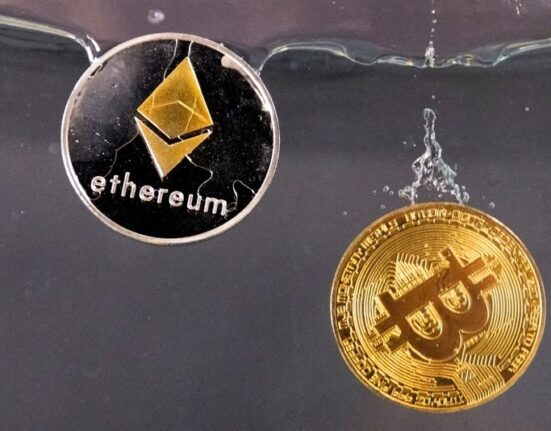-
Charlie Javice faces sentencing after being found guilty of tricking JPMorgan into paying $175M for Frank.
-
The financial aid startup’s 2021 sale was premised on a bogus database of 4 million users.
-
Javice argues that, despite the bogus user base, Frank was still a value to the bank.
A lot of math has to happen before a judge arrives at the two most important numbers in any sentence for a financial crime: how much time the defendant must serve, and how much money they must repay.
These calculations are being heatedly argued over in the case of Charlie Javice, due to be sentenced in Manhattan on Monday after being found guilty of fraud for using bogus user data to trick JPMorgan Chase into paying $175 million for her student financial aid startup, Frank.
At the center of the dispute is the word “loss.”
Should US District Judge Alvin K. Hellerstein sentence Javice based solely on the bank’s $175 million gross loss, as prosecutors want?
Or should he consider the bank’s net loss, subtracting for what Javice’s lawyers say was the website’s legitimate value and potential?
“The court is required to account for the value of what JPMC actually obtained in exchange for its purchase price,” the defense wrote last week. “Regardless of the number of users, Frank had real value.”
Federal prosecutors say the sentencing math — how much time, how much money — is simple.
Javice, they argue, should serve 12 years in prison and pay $300 million in restitution — $283 million to JPMorgan Chase and $17 million to the bank’s insurer.
It’s a sum, they say, that reflects the “enormous victim loss” suffered by JPMorgan Chase, the country’s largest bank.
Javice, as a federal jury in Manhattan found in March, repeatedly lied to the bank about Frank’s worth, promising Chase would gain access to the names and data of the website’s 4 million Gen-Z users — young adults the bank was eager to sell checking accounts and credit cards.
In fact, Frank had data for only 300,000 users.
“Based on the defendant’s lies, JPMC projected it could generate more than $500 million in revenue from selling banking products to Frank’s customers,” prosecutors argue.
“Had JPMC known the truth — that Frank had only a few hundred thousand users — the bank would not have acquired Frank.”
Prosecutors’ massive restitution demand includes the original 2021 sale price. It also includes the $2 million in salaries Chase paid to Frank employees and $1 million in salary paid to Javice herself, as Chase’s “managing director in charge of student solutions,” in the year before the fraud was discovered.
-
Charlie Javice faces sentencing after being found guilty of tricking JPMorgan into paying $175M for Frank.
-
The financial aid startup’s 2021 sale was premised on a bogus database of 4 million users.
-
Javice argues that, despite the bogus user base, Frank was still a value to the bank.
A lot of math has to happen before a judge arrives at the two most important numbers in any sentence for a financial crime: how much time the defendant must serve, and how much money they must repay.
These calculations are being heatedly argued over in the case of Charlie Javice, due to be sentenced in Manhattan on Monday after being found guilty of fraud for using bogus user data to trick JPMorgan Chase into paying $175 million for her student financial aid startup, Frank.
At the center of the dispute is the word “loss.”
Should US District Judge Alvin K. Hellerstein sentence Javice based solely on the bank’s $175 million gross loss, as prosecutors want?
Or should he consider the bank’s net loss, subtracting for what Javice’s lawyers say was the website’s legitimate value and potential?
“The court is required to account for the value of what JPMC actually obtained in exchange for its purchase price,” the defense wrote last week. “Regardless of the number of users, Frank had real value.”
Federal prosecutors say the sentencing math — how much time, how much money — is simple.
Javice, they argue, should serve 12 years in prison and pay $300 million in restitution — $283 million to JPMorgan Chase and $17 million to the bank’s insurer.
It’s a sum, they say, that reflects the “enormous victim loss” suffered by JPMorgan Chase, the country’s largest bank.
Javice, as a federal jury in Manhattan found in March, repeatedly lied to the bank about Frank’s worth, promising Chase would gain access to the names and data of the website’s 4 million Gen-Z users — young adults the bank was eager to sell checking accounts and credit cards.
In fact, Frank had data for only 300,000 users.
“Based on the defendant’s lies, JPMC projected it could generate more than $500 million in revenue from selling banking products to Frank’s customers,” prosecutors argue.
“Had JPMC known the truth — that Frank had only a few hundred thousand users — the bank would not have acquired Frank.”
Prosecutors’ massive restitution demand includes the original 2021 sale price. It also includes the $2 million in salaries Chase paid to Frank employees and $1 million in salary paid to Javice herself, as Chase’s “managing director in charge of student solutions,” in the year before the fraud was discovered.










Leave feedback about this